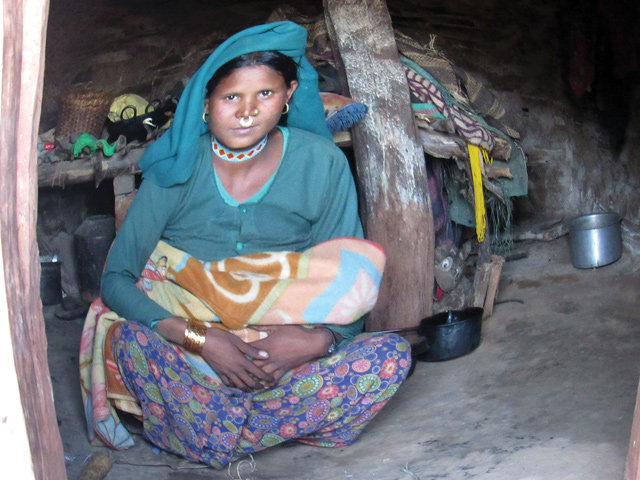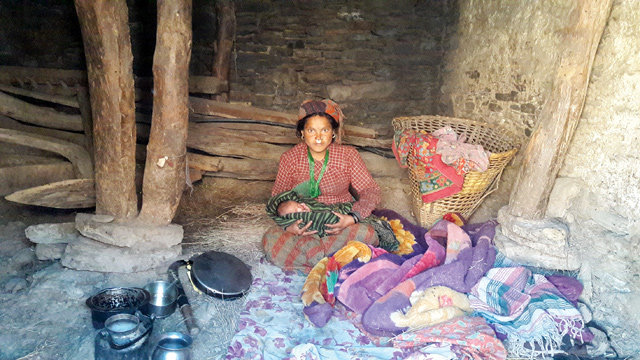By Karin Reibel | Project Leader
THANK YOU - THANK YOU - THANK YOU
Your generosity has made our GIVING TUESDAY campaign a huuuuge success. In only 12 hours we were able to raise more than $12,500 for the Rajbash hospital in rural Nepal!
$12,500 will cover the salaries for all 13 Rajbash Hospital employees, from doctors to midwives to the ambulance driver, for 3 months. Your support is vital for our crew of dedicated professionals who day in, day out, for the last five years, are providing critical medical care in this remote tri-county area of subsistence farming families. Their commitment to improve the lives of their countrymen in these previously unserved areas is absolute. Our nurses will literally ‘go the extra mile(s)’ (on foot) to reach and treat ill patients living in remote mountain villages with no roads. Our medical team consistently treats 300 to 350 patients per month, many of whom could be permanently incapacitated or die without medical attention.
This year the Nepali government awarded Rajbash hospital certification as a Regional Birthing Center. The incidence of maternal and infant mortality, particularly in remote areas, is a great concern. Our outreach educator (see her Bio in our last report) makes it her special focus to reach pregnant women in their villages with education about hygiene and perinatal care. She checks on their health status and counsels them on the advantages of a hospital birth with a trained midwife. This part of her work often seems like an uphill fight. A recent article in the Nepali Times will help you understand why:
‘The gods will be angry
Seminars in Kathmandu debate gender, reproductive rights and the maternal mortality, and as we mark the 16-day campaign against gender-based violence the clamour for gender equality gets louder. But in the remote mountains of Nepal, women still deliver babies in dirty, cold and stuffy cowsheds. They live there for one month, without nutritious food and no attendants. Donor-funded projects for safe motherhood have yielded few actual results in these far-flung villages. Women here fear that the gods will punish their families by causing drought, famine and disasters if they enter the house after childbirth. They are not allowed to eat nutritious food before and after delivery, and no one can touch them. The superstitions persist despite development projects and education. As a result, mothers and newborns suffer from malnutrition, other diseases and even death.’
The young woman in the picture above described her experience as follows:
‘I have been living in the cowshed since I gave birth 12 days ago. After delivering the baby, the mother and child were not allowed to stay in the house because the gods would be angry and we will face poor harvests and the baby will not be healthy. All the women from this village and my maternal village live in a shed after delivery and during menstruation.
This is my fifth child and I have lived in a shed for a month after every delivery. It gets too cold in there, and two of my babies died because of exposure. This baby is also suffering from cough and diarrhea. Not all children who are born survive. Everyone has lost a child, so have I.
The doctors at the health post tell us not to live in a cowshed after giving birth. The people from the NGOs also tell us the same thing. But this is how things have been done here for ages. Why would we have any problems when no one in the past faced any? I was also born in a cowshed and I am still healthy. Why discontinue the rituals that have been going on? We should not be selfish and make the gods angry?’
Nepal has made some progress in reducing infant and maternal mortality but, as this article illustrates, women in small, isolated communities still find challenging ancient traditions a tall order. That is an important fact to heed for us as we present our arguments for perinatal care and midwife assisted hospital births. Much work remains to be done.
Please join us in our ongoing effort to bring critical medical care to underserved Nepali families and to make childbirth safe for all women and infants in Nepal.
Here are two ways to support the Rajbash Hospital in Nepal:
Links:
Project reports on GlobalGiving are posted directly to globalgiving.org by Project Leaders as they are completed, generally every 3-4 months. To protect the integrity of these documents, GlobalGiving does not alter them; therefore you may find some language or formatting issues.
If you donate to this project or have donated to this project, you can receive an email when this project posts a report. You can also subscribe for reports without donating.
Support this important cause by creating a personalized fundraising page.
Start a Fundraiser
